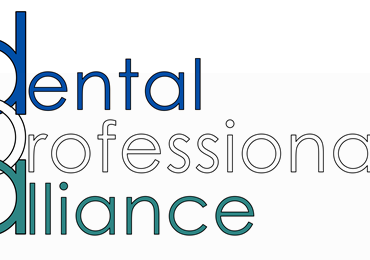A welcome mental health and wellbeing review by the GDC
On the publication of our rapid evidence assessment of mental health in dentistry, expert reference group member and guest blogger, Roz McMullan, considers the research results and the need for more evidence, particularly as concerns about burnout in the dental team grow.
Lots is talked about mental health and wellbeing in dentistry, and how high levels of stress and burnout are affecting the whole dental team. Therefore, the fact that the General Dental Council (GDC) commissioned the Universities of Plymouth and Southampton, along with the Peninsula Dental School, to carry out a rapid evidence assessment on the topic is to be welcomed.
The review asked three main questions.
- What is the prevalence of mental health issues in the dental team and dental students in the UK and how has it changed over the last 14 years?
- What preventative and intervention techniques to tackle mental health issues have been used and evaluated in dental teams and students in highly developed countries?
- And what preventative and intervention techniques have been used and evaluated to tackle mental health issues in other healthcare professionals in the UK?
To the expert reference group, of which I was a member, these seemed valid and valuable questions to which we either needed to know the evidence, or equally importantly, to know where there are gaps in our knowledge.
To no one’s surprise, the review concluded that dentists do suffer an increased level of stress and burnout, particularly General Dental Practitioners, with litigation and regulation the main stressors. It also noted an increase in the number of dentists showing signs of burnout over the 14-year period. Disappointingly the review showed there is little or no research on the wellbeing of dental care professionals, even though they are an integral part of the dental team.
It was also reassuring to note that this review recognised the importance of “latent” or “system related” stressors, such as the contracts which NHS dentists work under, and not just in General Dental Practice, but also those managing performance targets in community, hospital, and academic settings.
Frustratingly, this all comes as no surprise to anybody who has been involved with dental politics over the last number of years, including those representing their colleagues on Local Dental Committees up and down the country, the GDPC of the British Dental Association (BDA) and those on the craft committees of the BDA, colleges and specialist societies.
The GDC has made some inroads into changing policies and perceptions of their regulatory role, but this review shows that there is still work to do on that front.
As devolution has impacted upon the delivery of healthcare in the UK, the General Dental Services contracts in the four nations have diverged. Appallingly, even without the dreadful impact of the pandemic, none of them are fit for purpose, nor have they been for some years. The stress inflicted on the orthodontic community by the competitive tendering process in England was horrific. I know because I personally saw the effects.
As COVID-19 is brought under control, secondary care Trusts and commissioners are quickly switching their focus to the reduction of dental waiting lists that have inevitably resulted as the health service has focused on managing the second surge.
It is in this landscape we are asking our highly skilled dental teams to deliver high quality care to our patients. Not a bit of wonder they are stressed and burnt out. Motivation to stay in such broken systems will quickly wane.
Wellbeing is not just an individual responsibility; it is also an organisational responsibility.
Those who are charged with delivering NHS dental care to the UK population must devise systems which are attractive and fulfilling to work in. They must value the workforce and the face-to-face healthcare they deliver every day.
Going back to the review, for me there are two other take home messages.
Firstly, there is a large gap in our knowledge of the wellbeing of the whole dental team. No one knows a dentist better than their dental nurse. They know when the dentist they are with is having a bad day and when they need more support. Stress and poor mental health experienced by any member of the dental team will probably impact the efficiency, empathy, and competency of the whole team. Dental technicians, whose skills and knowledge we rely on, have different workplace environments and stressors. The profession needs research and evidence to better understand these interactions.
Mental health has long been the Cinderella specialty in medicine, and sadly so has mental health research. This review highlights the need for robust, UK-wide longitudinal studies, looking at all members of the dental team in all settings, so we can identify vulnerable populations, the relevant stressors, the interventions that work for dental professionals, and understand the factors that impact the ability of dental team members to recover from stress and poor mental health.
Finally, this report highlights that the case for early recognition and safe signposting is clear. There is no better time than now for all dental workplaces to put mental health wellness at the centre of their systems and policies. Many workplaces and general dental practices already offer a supportive environment for their team members. This can now be formalised using the Framework developed by the Mental Health Wellness in Dentistry Working Group.
If you need help, please reach out.
Support can be found by visiting the Wellbeing Support for the Dental Team website.
 eGDC
eGDC














